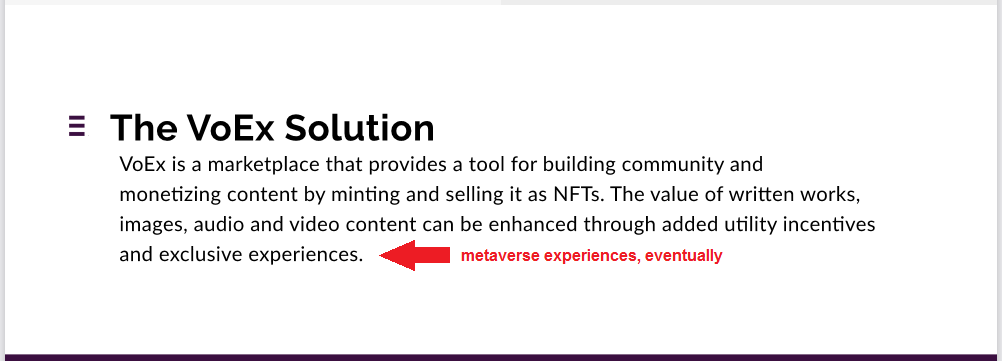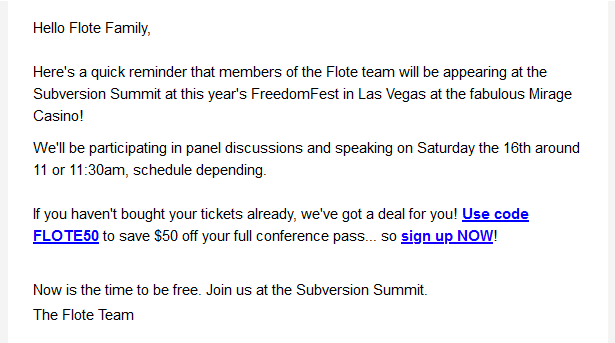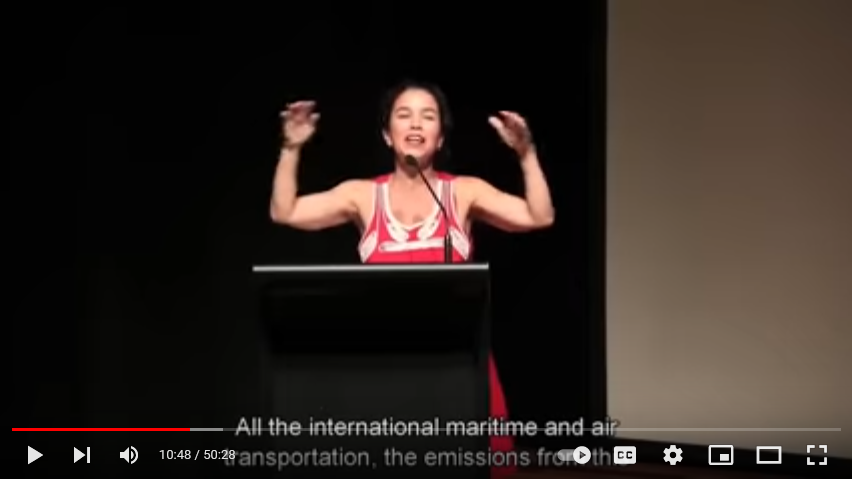Alternative Communitarianism: The More You Look Around, the More You See it
By Koen Jacobs, July 8, 2022

Last week I came to the conclusion that currently there not only is mainstream communitarianism but there’s also alternative communitarianism.
Interestingly, when you understand mainstream communitarianism well enough, you’ll easily see that the emergence of its ‘alternative’ version, or branch, is not only to be expected, its dialectic also demands it in order to ‘properly’ function.
And so, the more I look around, the more I see alternative communitarianism at work. It’s all over the place in alt media world, actually. From Jacque Fresco’s “Venus Project”, since the 1970s, to NFTs and ‘local economy’ organizations of today.
NFTs
In alternative circles, NFTs (non-fungible tokens) are a hot topic. These virtual assets are being introduced to alternative media audiences as if NFTs are the final solution for the world’s current, corrupted economic model.
However. The only reason why NFTs are continuously being talked about (promoted) by the monostream media is because these virtual assets are meant to merge with and exist within the metaverse. That’s also something that both branches of communitarianism have in common.
NFTs are gateways into the metaverse. And for many, many people that is a bitter pill to swallow. Because many ‘alternative’ people, ‘truthers’,… are now getting involved in NFTs, with the false belief that someday these will work in the public’s favor.
After the recent crypto crash, we can clearly see that that is not the case, and that cryptos, too, while advertised otherwise, are not free from massive manipulation and even centralization. That crash was obviously orchestrated, and only the ones with the most money and corporate power have made the most money during this crash.
NFTs, too, are destined to fail, and destined to leave millions of people holding an empty virtual bag.
To get to that point, of an orchestrated NFT crash, audiences first need to be lured into the NFT bubble. And perhaps more than their mainstream counterparts, also alternative communitarians have a, largely fake, ‘stakeholder’ position in this scheme.
They even use the same language as their mainstream counterparts. Which is documented in, for instance, this VoEx document.
What is VoEx?
Purpose
VoEx is dedicated to improving the human condition through the promotion of individual liberty and free markets.
We’ve created an NFT marketplace that provides the tools for nonprofit institutions to build community, deepen relationships with their supporters, and monetize their intellectual property.
Vision
The VoEx marketplace will lay the foundation for an ecosystem of stakeholders who are focused on a common purpose and a shared desire for outcome.
The community will evolve through a bottoms up approach where participants are encouraged to shape their own plans.
Discovery
Organizations can realize more value from their intellectual property and creative content.
Solution
The NFT Use-case for Philanthropy
Collectors who own, admire, and share their NFT assets become stakeholders in the growth of an ecosystem that advances a common vision.
Through the use of smart contract utility features, organizations can incentivize community engagement that will reward both creators and participants.
Organizations can monetize intellectual assets such as: written works, still images, audio, and video.
As you can see, VoEx too uses the same code language as their mainstream communitarian counterparts: community, stakeholder, common vision, common purpose, incentivize community engagement (gamification, metaverse).
Also their “Onesheet” PDF document uses this same code language, and metaverse lingo.

“Exclusive experiences”, i.e. metaverse experiences
When you look into VoEx, you’ll also see that it is connected to Freedom Fest’s “Subversion Summit” (what a name, right?) and the Flote social media platform.

These are some excerpts from an article written by VoEx founder Joseph Difiglia, and published on the Freedom Fest website:
NFT’s Higher Purpose
As organizations embrace the new innovations in NFT (non-fungible token) utility, I expect Web3 technology to emerge on a stronger foundation and with a higher purpose.
[…]
The true promise of NFTs will not depend solely on creating wealth but, more importantly, will rely on creating value. Value will be defined by an organization’s ability to build upon an ecosystem of like-minded members to advance a common mission. This paradigm shift is particularly interesting to nonprofits whose business models depend on creating content, as they can now effectively use all the power of their intellectual property to help expand their reach and build donor support.
While the monetization of intellectual property through NFT collectibles is proving to be a valid tool for philanthropy, the incremental value lies in the potential for collectors to build connections within a community. Mission-driven NFTs bring together owners with a purpose. These owners become stakeholders in the organization’s pursuit of a common goal.
[…]
Organizations will need to change their thinking. It will be essential to consider the strength and sentiment of the community and the perceived ongoing benefits of belonging to the community.
[…]
Utility functions such as unique experiences and loyalty rewards can be funded by monies raised through NFT auctions. Creative use of incentives, which are embedded in NFT smart contracts, will foster stronger member loyalty and drive networking effects within the community and beyond. Enticing members to interact, learn, and share ideas is the foundation of the next iteration of philanthropic use-cases.
In short, people, organizations and ‘communities’ are expected (and urged) to think in terms of ‘the metaverse’. If they don’t, it is implied, they will stay behind (because they are not good communitarians), and will not be able to enjoy all the fake wonders of the virtual experiences, which will eventually be linked to ‘privileges’, ‘rights’, contributions and responsibilities (liabilities).
Local Economy
While I strongly encourage buying and producing local, once this idea gets highly organized it ends up being coopted by evil agendas. We can all buy local every day when we want. We don’t need strong centralization for this concept to work. It has worked for centuries, and by now even millennia.
While many or most alternative metaverse fanatics probably reject the idea that humans and their CO2 emissions are a problem for this planet, in ‘local economy’ circles you are expected to accept this idea as truth. Which is something that they have in common with their mainstream counterparts.
Eventually, you end up with things like Sasha Stone’s “New Earth Sanctuary”, the “Thrive” cult, and this: “Planet Local, a Quiet Revolution“.
“Planet Local” speaks about everything that you’d want to hear: grow local, harvest local and buy local.
Who wouldn’t want to be part of that, right?
Here’s the thing, though. You can only join this “revolution” when you also parrot that humans and their emissions are the root problem on this planet.
 Of course, there’s another catch here (there always is). Eventually, such highly organized (and centralized) ‘local economy’ groups will inevitably do business, or associate themselves with, front operations run by the World Economic Forum (WEF), the United Nations, the EU and others.
Of course, there’s another catch here (there always is). Eventually, such highly organized (and centralized) ‘local economy’ groups will inevitably do business, or associate themselves with, front operations run by the World Economic Forum (WEF), the United Nations, the EU and others.
Here’s what the WEF has to say about ‘local’ economies, through its “food innovation hubs” program:
Food Innovation Hubs Put Farmers at Head of the Table for Systems Change
– Innovation is critical to bring about a fundamental shift in the way our food is produced and consumed
– The World Economic Forum, the government of Netherlands and several public and private sector partners are launching Food Innovations Hub to help transform the food ecosystem
– More than 20 organizations are leading the initiative with work already underway in parts of Africa, ASEAN, Colombia, Europe and India
– With country-led approaches, the Hubs will drive both high-end and low-cost grassroots and other innovations that could have scalable impact
Obviously, local farmers would not be at the head of the table. Nothing would change for the better with the WEF involved, and the WEF ‘driving’ the grassroots on top of that.
And, clearly, the WEF is already all over this niche, because its members want to dominate also this niche. And they’ll do it by setting the terms, and by stealing inventions and ideas from the local economy groups that are linked to one or more of the WEF/UN front operations.
In the end, local economy is very simple. There’s no central government or ‘association’ required for this.
You buy local. The more people who buy local, the more local businesses can grow, and become and stay profitable. The more local businesses can grow, the more local businesses are needed, because many will start to rely on local outsourcing, due to their success. Which inspires and motivates more people in the neighborhood, or in the next town, to also start doing business, locally.

